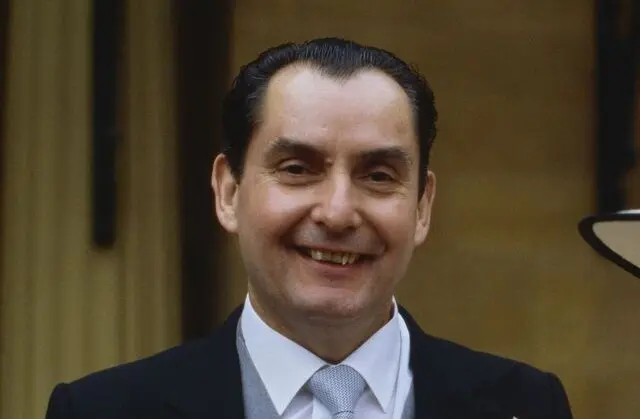Ray Reardon Net Worth, Early Life, Career, Personal Life [2024]
Ray Reardon, affectionately nicknamed “Dracula” for his sharp features and dark hair, is a name etched in snooker history. His six World Snooker Championship titles between 1970 and 1978 underscore a career defined by precision and unmatched strategic skills. Born in Wales, Reardon’s journey from a coal miner to a globally recognized snooker legend showcases not just resilience but also the power of dedication.
As snooker began gaining popularity during the mid-20th century, Reardon’s rise paralleled the sport’s golden era. With his calm demeanor and an uncanny ability to outmaneuver his opponents, he became a household name, admired for his flawless technique and tactical genius. Beyond his achievements, he left an indelible impact on how the game is played today.
| Full Name | Raymond Reardon |
| Nickname | Dracula (due to his sharp features and dark hair) |
| Date of Birth | October 8, 1932 |
| Place of Birth | Tredegar, Wales |
| Profession | Former Professional Snooker Player, Coach, and Mentor |
| Career Span | 1960s–1991 |
| World Championship Wins | 6 (1970, 1973, 1974, 1975, 1976, 1978) |
| Other Major Titles | Pot Black Winner, Multiple Team World Cup Titles |
| Highest Ranking | World No. 1 (1976–1981) |
| Net Worth (2024) | Estimated between $2 million and $5 million |
Early Life
Ray Reardon was born on October 8, 1932, in the Welsh town of Tredegar, nestled within the coal-mining heartland of the United Kingdom. His upbringing was shaped by the challenging environment of post-war Wales, where coal mining dominated the community’s livelihood. Following in his father’s footsteps, Reardon began working as a coal miner at the tender age of 14. This early experience in the mines instilled resilience and discipline, qualities that later defined his snooker career.
A significant turning point came when Reardon transitioned from mining to law enforcement and became a police officer. While serving the community, he honed his skills on the green baize in local clubs. His natural talent and sharp tactical mind quickly made him a formidable amateur player. By his late twenties, Reardon’s growing reputation as a snooker prodigy convinced him to pursue the sport professionally.
Despite facing numerous challenges in his early life, Reardon’s determination to succeed stood out. His rise from the harsh conditions of the mines to the spotlight of professional snooker exemplifies his ability to adapt and thrive. His humble beginnings not only shaped his character but also made his success all the more remarkable.
Career
Ray Reardon’s career is a story of dominance and innovation in professional snooker. His first major breakthrough came in 1969 when he won the World Snooker Championship, an achievement that marked the beginning of an era dominated by his strategic prowess. Over the next decade, Reardon went on to claim the championship title six times, solidifying his position as one of the most successful players in the sport’s history.
His playing style was characterized by precision, patience, and tactical brilliance. Unlike many of his contemporaries, Reardon emphasized safety play and methodical shot-making, often forcing opponents into making costly errors. This approach earned him a reputation as one of the most intimidating players to face on the green baize.
Some of his most memorable victories include defeating Alex Higgins in the 1976 World Championship final. This win not only showcased his skill but also highlighted his ability to handle high-pressure matches with remarkable composure. In 1982, Reardon reached another milestone by becoming the oldest player to win a ranking tournament at the age of 50.
Beyond his competitive achievements, Reardon contributed significantly to the sport by mentoring young players and elevating snooker’s popularity during its golden age. His contributions continue to inspire generations of snooker enthusiasts and professionals alike.
Net Worth
As of 2024, Ray Reardon’s estimated net worth falls between $2 million and $5 million. This wealth stems primarily from his career as a professional snooker player, where he dominated the sport for over a decade. His prize money from six World Championship victories and numerous other tournaments forms a significant portion of his earnings.
In addition to tournament winnings, Reardon’s involvement in snooker extended beyond the competitive circuit. After retiring, he contributed to the sport as a coach, most notably helping Ronnie O’Sullivan secure a world title in 2004. His expertise in snooker tactics and strategy made him a sought-after mentor, adding to his financial portfolio. Moreover, his appearances in exhibitions and commentary roles likely supplemented his income during his post-retirement years.
Though earnings in Reardon’s era were modest compared to today’s figures, his consistent success ensured a stable financial foundation. Compared to modern players who benefit from increased sponsorships and media coverage, Reardon’s financial legacy highlights the value of longevity and consistency in sports.
Now residing in Devon, Reardon enjoys a comfortable life, reflecting the rewards of his hard-earned success. His story is a testament to how skill and determination can lead to enduring financial and personal fulfillment.
Awards and Achievements
Ray Reardon’s career is filled with accolades that showcase his unparalleled dominance in the world of snooker. His most notable achievement is winning the World Snooker Championship six times between 1970 and 1978. This feat placed him among the sport’s all-time greats, establishing a standard for excellence that few have matched. These victories came during an era when snooker was gaining mainstream popularity, making Reardon a household name.
In addition to his world titles, Reardon also won numerous other tournaments, including the Pot Black competition and the World Cup, where he represented Wales. His role in helping the Welsh team secure consecutive World Cup victories in 1979 and 1980 further highlighted his contributions to the sport at both individual and team levels.
Reardon’s influence extended beyond titles; he received the Member of the Order of the British Empire (MBE) in 1985 for his services to snooker. This prestigious honor recognized his impact on the sport and his role in popularizing it during its formative years. Even after his retirement, Reardon’s legacy as a champion and mentor continues to resonate, marking him as one of snooker’s most celebrated figures.
Personal Life
Ray Reardon’s personal life has been as grounded and steady as his approach to snooker. After retiring from competitive play, he chose to settle in the tranquil surroundings of Torquay, Devon, where he enjoys a quiet and fulfilling life. Known for his humility and approachable demeanor, Reardon has remained connected to the community, participating in local activities like golf and occasionally engaging with fans.
Though he has always kept his family life relatively private, Reardon is known to have a close-knit support system that played a significant role in his success. His disciplined nature, a trait rooted in his early years as a coal miner and police officer, carried over into his personal life. This balance allowed him to maintain focus on his career while fostering strong relationships outside the snooker arena.
In retirement, Reardon has continued to contribute to the sport through coaching and mentoring. His collaboration with Ronnie O’Sullivan in 2004 exemplifies his passion for guiding the next generation of players. Reardon’s enduring presence in the snooker world, coupled with his unassuming personal lifestyle, reflects his dedication not only to the game but also to living a meaningful and well-rounded life.
Ray Reardon Legacy
Ray Reardon’s legacy stands as a benchmark for excellence and innovation in snooker. His unmatched dominance during the 1970s helped elevate the sport, bringing it into the spotlight during its formative years. Reardon’s six World Championship titles not only highlight his skill but also cement his place as one of snooker’s most influential players.
Known for his strategic precision and mental resilience, Reardon redefined how the game was played. His ability to outthink and outmaneuver opponents set a standard for tactical gameplay that continues to inspire professionals today. His mentorship of players like Ronnie O’Sullivan demonstrates his commitment to nurturing talent and ensuring that snooker’s rich traditions endure.
Beyond his competitive achievements, Reardon’s impact extended to popularizing snooker as a sport. During his prime, he was instrumental in making televised snooker events a cultural phenomenon in the UK, helping the sport attract new fans. His calm demeanor and sportsmanship further solidified his reputation as an ambassador for snooker.
Reardon’s contributions remain relevant decades after his retirement, and his influence on snooker’s evolution is undeniable. He is not just remembered as a champion but as a pioneer who left an indelible mark on the game.
Frequently Asked Questions (F.A.Q)
What is Ray Reardon’s net worth?
Ray Reardon’s estimated net worth as of 2024 is between $2 million and $5 million. This wealth comes from his successful snooker career, coaching roles, and post-retirement endeavors.
What are Ray Reardon’s major achievements?
Reardon is a six-time World Snooker Champion, dominating the sport in the 1970s. He also received an MBE for his services to snooker and helped Wales win multiple World Cups in team events.
Is Ray Reardon still involved in snooker?
Although retired from professional competition, Reardon has remained involved as a mentor and coach. His work with Ronnie O’Sullivan during the 2004 World Championship highlights his influence on the sport.
Where does Ray Reardon live now?
Reardon resides in Torquay, Devon, enjoying a quiet and fulfilling retirement while staying connected to the snooker world.
Wrapping Up
Ray Reardon’s journey from a small Welsh mining town to the pinnacle of snooker exemplifies resilience, talent, and strategic mastery. His six World Championship titles and tactical approach to the game redefined snooker during its golden age. Beyond his achievements, his mentorship and dedication to the sport have inspired generations of players, ensuring his legacy endures.
| Read Also |
| Kynan Bridges |


